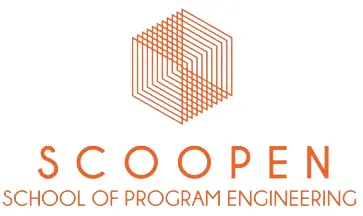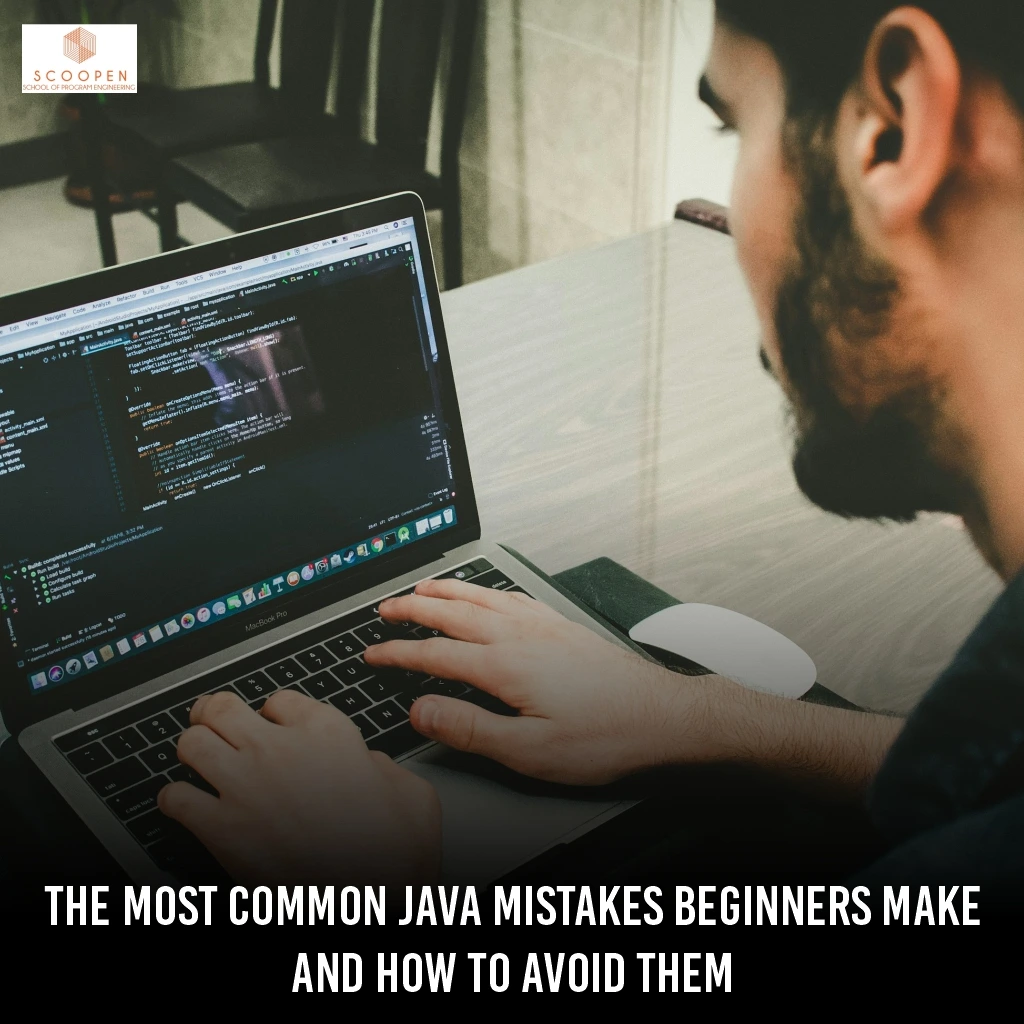Java is a versatile programming language currently enjoying great popularity across the globe. including its flexibility, object-oriented program organization, and reflection in numerous applications hence making it a programmer’s favorite language. But for starters, it is comparatively difficult to find your way through all the complexities that Java offers. This is an unfortunate thing since many beginners make mistakes; by doing so they will take longer to learn the game. No matter whether you are attending Java Classes in Pune as a student, or you are pursuing a Java Online Course, you can avoid these mistakes and pave the way for success much faster. In this article, we discuss common Java errors that every developer faces at the initial stage of development and how to deal with them.
Why Beginners Struggle with Java
For some newcomers, Java has a complex structure considering you are learning object-oriented programming (OOP) from scratch when beginning with this language. The problem mainly arises from Java’s abundance of resources contained in the API, the multiple data types, and the extremely strict syntax, which tends to cause much confusion. Newcomers are also likely to find lessons relating to the hierarchy of inheritance, exception handling, and management of memory challenging. Some of these difficulties are brought about by the absence of learning fundamentals. Enrolling in a structured Java Course in Pune or taking up Java Classes in Pune with Scoopen can provide hands-on experience, helping beginners navigate these challenges more efficiently.
The Most Common Java Mistakes
- Misunderstanding Data Types – In the process of Java programming, one of the main challenges that the developer must overcome is the type of data. Newbie programmers do not differentiate between basic data types like ink, float, and Boolean from complex ones such as objects and arrays. Such a situation could easily result in some forms of code mishap that operators might not have imagined.
How to Avoid it – It is always important to make sure that you know what data type you are dealing with. This will help one avoid new bugs when one must use a primitive type instead of an object or the other way around.
- Incorrect use of Null – More Java programmers know of the Null Pointer Exception than any other exception type. One mistake you can make is to fail to check if an object is null before invoking a method on it you will find yourself with a program that has crashed.
How to Avoid it – Before collecting values that may result in null values, always do null checks or where possible use Java 8’s Optional objects to handle any null values. By applying this habit early in your Java Classes in Pune, you will avoid major issues later.
- Failing to Close Resources – Beginners often forget to close resources like I/O streams or database connections, which can lead to memory leaks. This is especially true for those who have not yet mastered exception handling.
How to Avoid it – They should be used with a try with resources statement since the resources will be closed when the program is done running the block. Scoopen’s Java Online Course covers this crucial aspect extensively.
- Incorrectly Using Loops – Looping structures like for and while loops can be tricky. Beginners often encounter infinite loops or off-by-one errors, which can make debugging difficult.
How to Avoid it – Always ensure that your loop has a clear exit condition. Test the loop logic with simple examples before implementing it in larger programs.
- Misunderstanding Static Vs Non-Static Methods – The concept of static methods can be confusing for beginners. Misunderstanding when and how to use static methods often leads to unexpected behavior in programs.
How to Avoid it – A simple rule is that static methods belong to the class, not the instance. Learn to differentiate between when to use static and instance methods. Scoopen’s Java Course in Pune helps clarify these concepts through hands-on projects.
- Overlooking Exception Handling – Many beginners either overuse try-catch blocks or ignore exceptions altogether. Both practices can lead to poorly written code that is difficult to debug.
How to avoid it – Make it a habit to handle exceptions correctly. Use meaningful catch blocks, and avoid catching generic Exception unless necessary.
- Probable misuse of Inheritance and Polymorphism – This concept of Java has two major elements of OOP and these are Inheritance and Polymorphism, though a reasonable percentage of bad coders misuse these elements of OOP. Probably the most common issue that newcomers encounter is the misuse of those aspects as they write overly complicated code.
How to avoid it – Stick to the basics and keep your class hierarchies simple. Practice clean inheritance and avoid overengineering your programs.
How to Avoid These Mistakes
- Master the Fundamentals -This is important not only when you take Java Classes in Pune but also when you are taking a Java Online Course you need to have your basics down first before tackling more complicated approaches. Our Institute offers comprehensive training that helps you get a firm grip on these fundamentals.
- Write Clean and Readable Code – Avoid writing complicated, unreadable code. Stick to naming conventions, indent your code properly, and break it into smaller functions for clarity.
- Use Debugging Tools – Learning to use debugging tools can help you spot errors in your code early. Break down complex problems using a debugger to see how your code is executed step-by-step.
- Practice Test-Driven Development (TDD) – Write unit tests for your methods. Not only does this make your code more robust, but it also helps catch mistakes early on.
- Leverage Community Resources – Joining forums or coding communities can help you get feedback on your code. Many students from Java Classes in Pune find online communities invaluable for resolving doubts.
Best Practices for Java Beginners
- Write Modular Code – Break your code into smaller, manageable parts. Writing modular code helps in debugging and improves readability.
- Refactor Regularly – Remember it is perfectly acceptable to refactor your code repeatedly. Refactoring is a critical strategy in the creation of software that has been developed with the long-term goal in mind.
- Do not Rely Solely on IDEs – It is always helpful to use a good IDE such as IntelliJ or Eclipse to code, although you must make sure that the tool does not take up the task of understanding what is happening at the back end.
Resources for Learning Java Properly
Scoopen’s Java Classes in Pune provide a comprehensive learning experience tailored to both beginners and those looking to deepen their knowledge. Here is how our institute helps you learn Java properly:
- Expert Guidance: We offer expert-led training by experienced instructors who simplify complex Java concepts, ensuring you gain a strong foundation.
- Hands-on Projects – You will implement knowledge by working on actual projects at our institute, to help you understand the application of the concepts learned.
- Personalized Learning – Having an organized schedule, lots of individual attention making sure every learner moves through the course as planned and deals with each difficulty as it arises.
- Industry-Relevant Skills: Our training institute prepares you for real-world challenges, providing the skills needed to excel in Java development in the professional sphere.
Take your first step towards mastering Java with Scoopen’s Java Courses in Pune!
Conclusion
Entering Java can indeed be very frustrating but at the same time very fulfilling. With the time and effort, you invest in your programming, you will ensure your code does not contain these mistakes and therefore is clean. Whether you are new to programming or looking to deepen your understanding, Scoopen’s Java Classes in Pune offer the perfect environment to grow your skills. From the basics to the more complex concepts that include inheritance and exceptions, our institute’s formatted courses will guide you to becoming a professional. To get started, call 9403233090 and take the first step towards becoming a proficient Java developer.
Frequently Asked Questions
What makes Scoopen’s Java Classes in Pune different?
Ans – Our institute’s Java Classes in Pune stand out due to expert-led sessions, hands-on projects, and personalized learning paths. This program offers a combination of both the theoretical as well as the practical concepts that are necessary hence it would be ideal for any candidate who wants to do well in Java development and get a good job.
Are Scoopen’s Java Classes suitable for beginners?
Ans – Yes, Scoopen’s Java Classes in Pune are designed for beginners. The subject includes all basics and checks whether the foundational level of knowledge in Java is sound or not. Mentors lead learners through every level and make sure that they seamlessly progress from the novice level, through the intermediate level, all the way to the expert coders.
What will I learn in Scoopen’s Java Course in Pune?
Ans – In Scoopen’s Java Course in Pune, you will learn core Java concepts, object-oriented programming, exception handling, and more. The course also features assignments that enable you to show that you can use the information in practical projects.
Can I enroll in an online Java course through Scoopen?
Ans – Yes, we offer a Java Online Course for those who prefer remote learning. It is as effective as the face-to-face program since it offers the same content as the normal program, and you will learn the skills required from the comfort of your own home.
How can Scoopen’s Java Classes help in job placement?
Ans – The Java Classes in Pune provided by our institute are aimed at helping their clients get a job. The practical exercises and use of actual case scenarios will make you employable. We also assist with the creation of resumes and job interviews.


